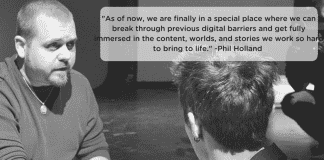
There’s never been anything upbeat about dramas featuring protagonists addicted to heroin. The sad place where musician/model/actress Nico (born Christa Päffgen in Cologne, Germany) was at just a year before her death at 49, is no exception. However, director Susanna Nicchiarelli finds space for humor in her somewhat untraditional biopic Nico, 1988. The writer-director has chosen to focus on one year and include several full songs performed by actress Trine Dyrholm, as Nico and her band tour Europe. With these elements, Nicchiarelli, who has as many documentary credits to her name as dramatic features, has created a film that ruminates on accepting a failed life and treasuring the rare moments that still sparkle in between one miserable moment after another. It’s actually an apt portrait about an artist who still has an influence on many female singers to this day, from goth rockers like Siouxsie Sioux to indie rockers like Lætitia Sadier of Stereolab to pop icons like Lana Del Rey.
This is far from a romantic portrait of an icon, whose popular heyday came and went in the late ‘60s. Nico never stopped making music, though, including collaborations with Brian Eno, and John Cale produced her (less than stellar) final record, 1985’s Camera Obscura. In 1988, Nico and her band took a van across Europe, including a visit to then Soviet-controlled Czech Republic to play small venues. This film shows the private thrill the singer receives from making field recordings on a portable tape machine, in between injections of smack to the ankle. She endures the sweats and nausea like a champ as the band enters Prague free of drugs. Her guitarist (Calvin Demba), also an addict, not so much. There’s a little aside moment that touches on Nico’s Antisemitism when her manager Richard (John Gordon Sinclair) sets her up with an apartment managed by a Jewish landlord. Then there are the struggles with her guilt at having neglected her son Ari (Sandor Funtek), which seems to stand as her most unshakable failure, though the film seems to hint at a reconciliation.

Nico, like any real person, was a complicated human being, and Nicchiarelli’s depiction never makes a big drama about the weight of Nico’s failings. There’s humor in her forgetting the name of the tour manager (Karina Fernandez) who stands next to Richard during performances and critiques some of her songs with words like “interesting” and “hideous.” Dyrholm gives a hell of a performance, from re-recording vocals to her wide-eyed performances on stage. It wasn’t a glamorous era for Nico. Someone says of her, “That lady is living history,” yet she seems hardly alive. She sometimes performs in a zombie-like state to rather indifferent bar lurkers, save for a rollicking version of “My Heart is Empty” at a hall in Prague, where such performances were illegal.
Though Nicchiarelli focuses on the year 1988, she includes a stylistic flourish in the form of brief flashbacks to the ‘60s of Nico with the Velvet Underground and Andy Warhol shot on 16mm by Jonas Mekas (Jonas Mekas on capturing “real life” on film, poetic filmmaking and more in Miami New Times). It’s poetic that these memories have dictated the rest of the film’s 4:3 framing. It’s an important flourish that stands as symbolic on the past’s unshakable influence in everything that has come since she peaked early. Nico was a woman doomed by her past as much as defined by it. She hated having to talk about the VU years, and Nicchiarelli also doesn’t omit that. For a film focused on a year in the life of a real person, this unconventional sort of biopic also doesn’t skimp on the past for all of its haunting influence.
Nico, 1988 runs 93 minutes, is in English, German, Czech and French with English subtitles and is rated R. It opens in our South Florida area exclusively at the Miami Beach Cinematheque on Friday, Aug. 31. For screenings in other parts of the U.S., visit this link. Magnolia Pictures sent us an online screener for the purpose of this review.









